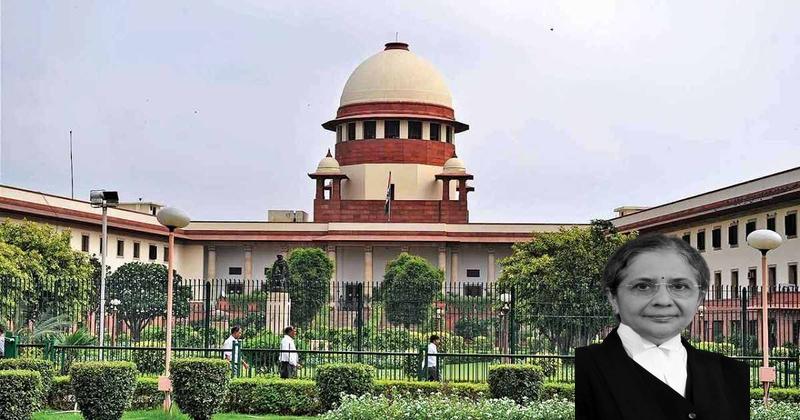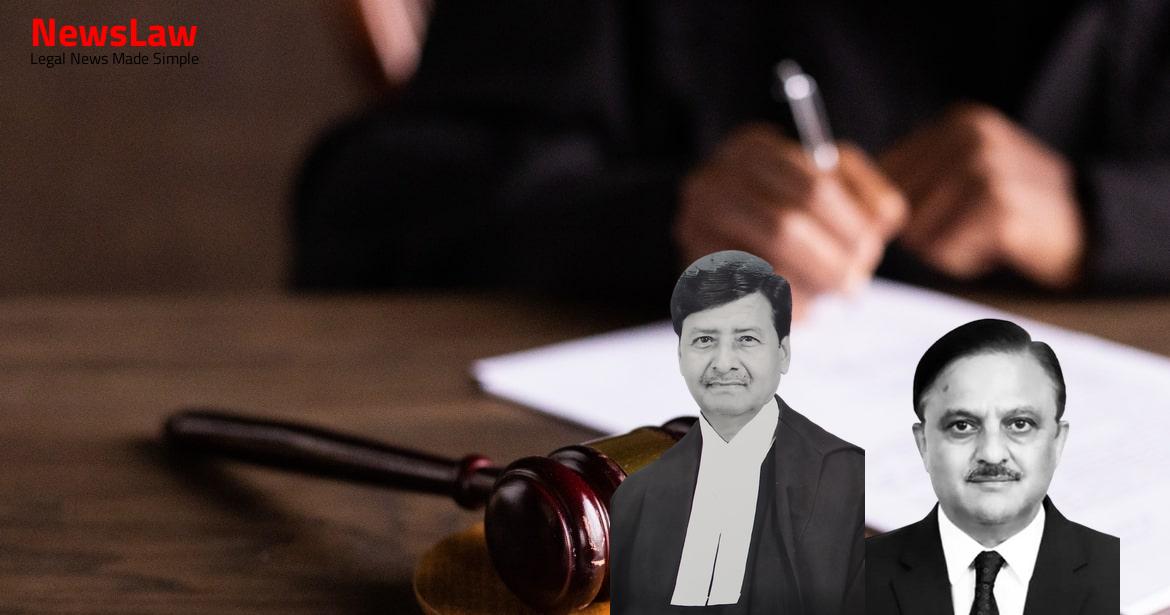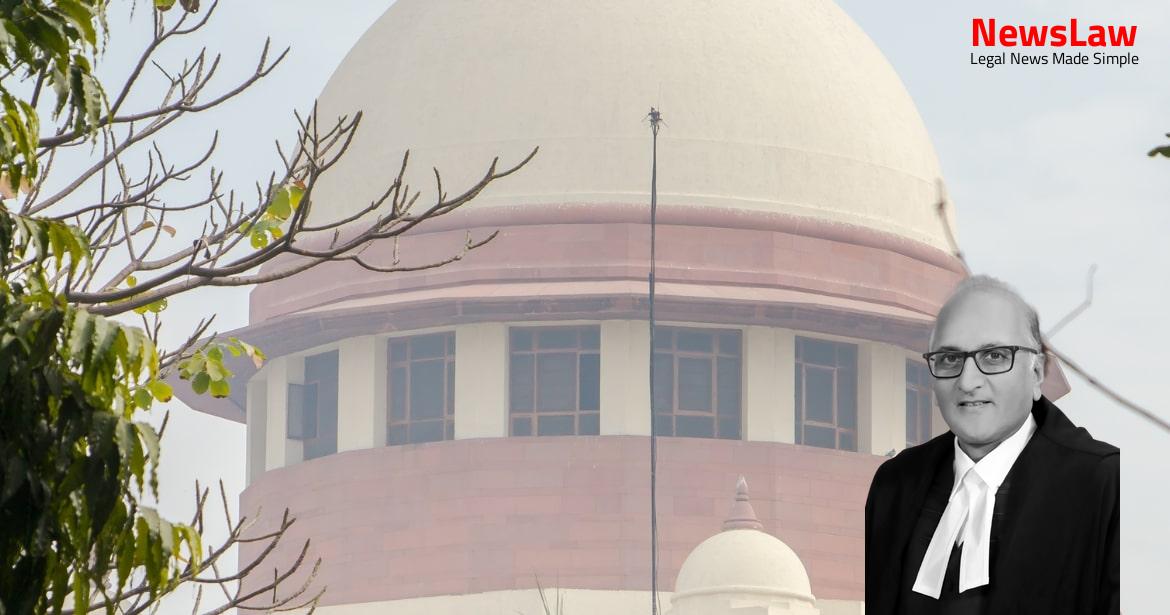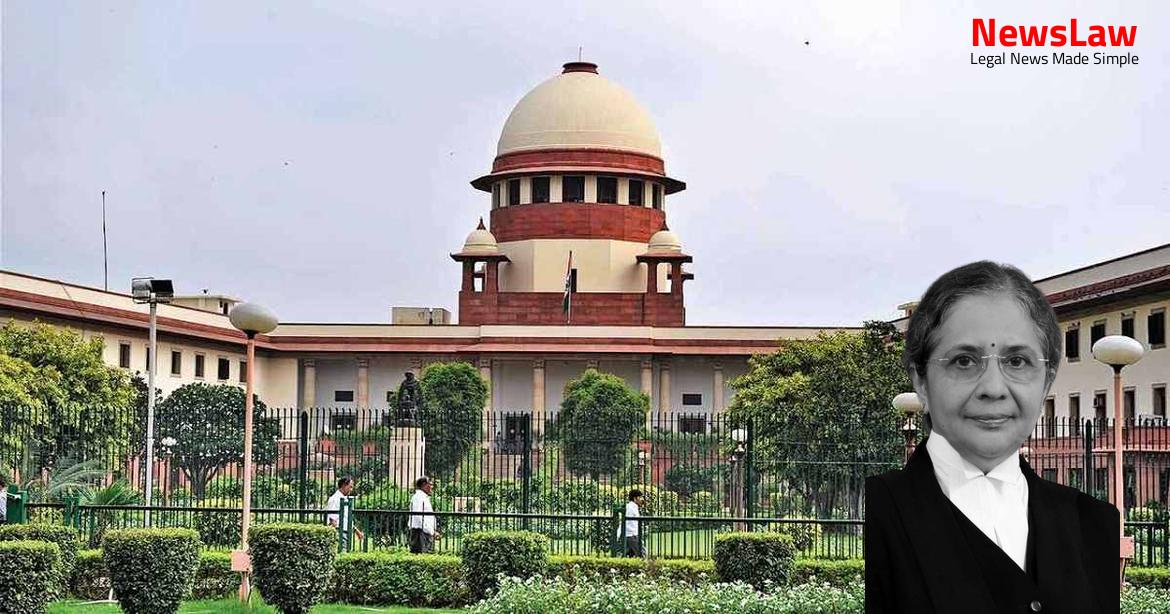The appellant filed her nomination from No 36-Thoothukudy Lok Sabha Constituency, along with the affidavit in Form No 26 as per Rule 4A of the Conduct of Election Rules 1961 (hereinafter referred to as the said Rules).
Also Read: https://newslaw.in/supreme-court/high-court-dismisses-bail-application-in-corruption-case/
3/2019 before the High Court under Section 80, 80A, 100(1)(d)(iv) of the Representation of the People’s Act, 1951 (hereinafter referred to as the RP Act) seeking declaration that the election of the returned candidate, i.e., the 2 appellant herein, from No 36, Thoothukudy Lok Sabha Constituency, in the Lok Sabha election conducted pursuant to the notification of the Chief Election Commissioner dated 19.03.2019 was void and liable to be set aside, on the ground that the information sought by the Election Commission of India in regard to the payment of income tax of her spouse was not provided by her in the affidavit – Form no.26 submitted along with the nomination papers, and thus had intentionally suppressed and not disclosed the same to the electors.
In the said Election petition, the appellant/returned candidate had filed OA No 929/2019 praying to strike off paragraphs 5 to 17 of the Election petition and had filed OA No 930/2019 praying to reject the Election petition in limine on the ground inter alia that the averments and allegations contained in the Election petition were wholly vague and bereft of material facts, and therefore did not meet with the 4 requirements of Section 81, 83, 86 and 100 of the said Act. the said Act makes it mandatory for all election petitions to contain a concise statement of material facts on which petitioner relies, however in the present case the respondent-election petitioner has failed to plead the material facts and therefore the Election petition is liable to be dismissed in limine. (v)
The entire Election petition filed by the respondent is based on vague and bald assumptions, presumptions and conjectures without stating the material facts more particularly the material facts in support of the ground contained in Section 100(1)(d)(iv) of the said Act. The appellant had simply stated in the said Form that her spouse was a foreign citizen without disclosing the status 7 of filing of income tax return and the income tax reference number provided in Singapore.
Act, 1951: In order to appreciate the rival contentions raised by the learned counsel for the parties, it would be beneficial to refer to some of the relevant provisions contained in the Constitution of India as also the R.P. Article 328 enables the legislature of a State, if Parliament has not made such legislation, to make laws with respect to all matters relating to elections to the Houses of legislature of the State. Act, 1951 deals with the disputes regarding Elections, and Chapter II thereof deals with the presentation of the Election petitions to the High Court.
As per Section 86, the High Court is empowered to dismiss an election petition which does not comply with the provisions of Section 81 or Section 82 or Section 117.
Also Read: https://newslaw.in/supreme-court/illegality-of-arrest-under-pmla/
Sub-section(4) of Section 36 states that the Returning Officer shall not reject any nomination paper on the ground of any defect which is not of a substantial character. What has been gleaned from the said authorities may be summed up by stating that a right to elect, though fundamental it is to democracy, is neither a fundamental right nor a common law right. Thus, the entire election process commencing from the issuance from the notification calling upon a constituency to elect a member or members right upto the final resolution of the dispute, concerning the election is regulated by the Representation of People Act 1951.
It is also pertinent to note that the insertion of Rule-4A and Form-26 appended to the said Rules is also culmination of the said observations made this Court in the aforesaid case, which require the candidate to disclose the information and particulars in the form of affidavit to be submitted along with the nomination paper.
The law so far developed and settled by this Court with regard to the non-compliance of the requirement of Section 83(1)(a) of the EP Act, namely – “an Election petition must contain a concise statement of material facts on which the petitioner relies”, is that such non- compliance of Section 83(1)(a) read with Order VII, Rule 11, CPC, may entail dismissal of the Election Petition right at the threshold. , a Three-Judge Bench of this Court again had an occasion to deal with the issues as to what would constitute “material facts” and what would be the consequences of not stating the “material facts” in the Election petition, as contemplated in Section 83(1)(a) of the RP Act, and the Court observed as under: 20 26. In Ram Sukh vs Dinesh Aggarwal (supra), this Court again while examining the maintainability of Election petition filed under Section 100(1)(d)(iv) of the RP Act, elaborately considered the earlier decisions and observed that it was necessary for the election petitioner to aver specifically in what manner the result of the election in so far as it concerned the returned candidate was materially affected due to omission on the part of the Returning Officer. The material facts must be such facts as would afford a basis for the allegations made in the petition and would constitute the cause of action, that is every fact which it would be necessary for the plaintiff/petitioner to prove, if traversed in order to support his right to the judgement of court. An Election petition can be summarily dismissed on the omission of a single material fact leading to an incomplete cause of action, or omission to contain a concise statement of material facts on which the petitioner relies for establishing a cause of action, in exercise of the powers under Clause (a) of Rule 11 of Order VII CPC read with the mandatory requirements enjoined by Section 83 of the RP Act.
The bone of contention raised by the learned counsel appearing for the respondent-election petitioner is that the Election Commission of India had called for the information prescribing the Form 26 in regard to status of filing of income tax return of candidates and their family members by exercising powers under Article 324 of the Constitution of India and in that the petitioner had provided information that her spouse was working as consultant at foreign country and earning salary against the column No 8, Serial No.9(b) and 9A(b), respectively under Part A of Form 26. He therefore submitted that these material facts which have already been stated in the Election petition, were sufficient to constitute cause of action for filing Election petition under Section 100(1)(d)(iv) of the RP Act. If according to the respondent-election petitioner, the appellant-returned candidate had suppressed the Permanent Account Number of her spouse and also about the non-payment of income tax of her spouse in the foreign country, it was obligatory on the part of the Election petitioner to state in the Election petition as to what was the Permanent Account Number of the spouse of the returned candidate in India which was suppressed by her and how the other details furnished about her husband in the said Form The material facts which are primary and basic facts have to be pleaded by the Election petitioner in support of the case set up by him to show his cause of action and omission of a single material fact would lead to an incomplete cause of action, entitling the returned 33 candidate to pray for dismissal of Election petition under Order VII Rule 11(a) CPC read with Section 83(1)(a) of the RP Act. Assuming that the election petitioner did not have the opportunity to see the Form
Also Read: https://newslaw.in/supreme-court/dismissal-of-bail-application-in-money-laundering-case/
No 26 filled in by the Appellant-returned candidate, when she submitted the same to the Returning Officer, and assuming that the Returning Officer had not properly scrutinized the nomination paper of the appellant, and assuming that the election petitioner had a right to question the same by filing the Election petition under Section 100(1)(d)(iv) of the said 34 Act, then also there are no material facts stated in the petition constituting cause of action under Section 100(1)(d)(iv) of the RP Act.
In absence of material facts constituting cause of action for filing Election petition under Section 100(1)(d)(iv) of the said Act, the Election petition is required to be dismissed under Order VII Rule 11(a) CPC read with Section 13(1)(a) of the RP Act. 3/2019 filed by the respondent-election petitioner deserves to be dismissed, and is accordingly dismissed.
Case Title: KANIMOZHI KARUNANIDHI Vs. A. SANTHANA KUMAR (2023 INSC 499)
Case Number: C.A. No.-003411-003412 / 2023



